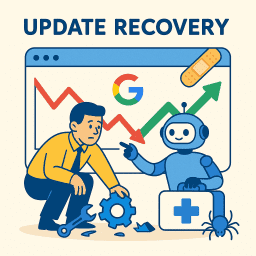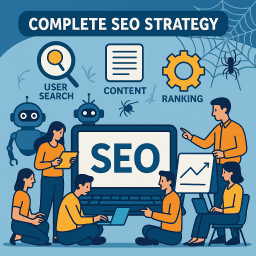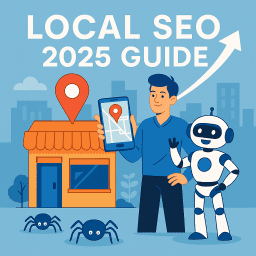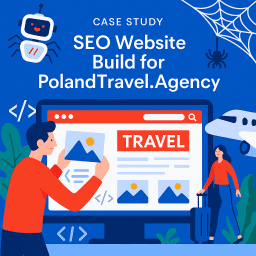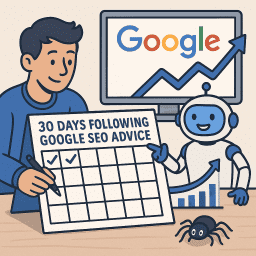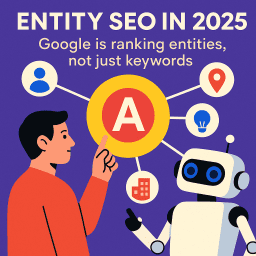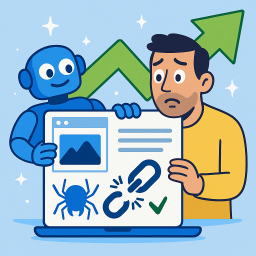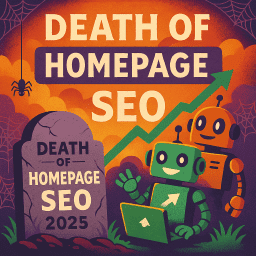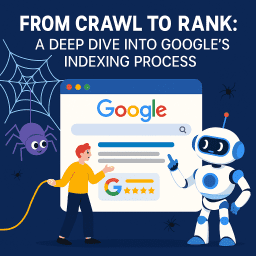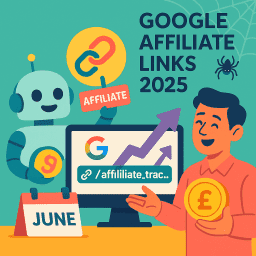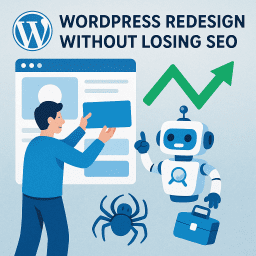Why Isn’t My Website Ranking on Google? | Common SEO Fixes
You Built It… But They’re Not Coming
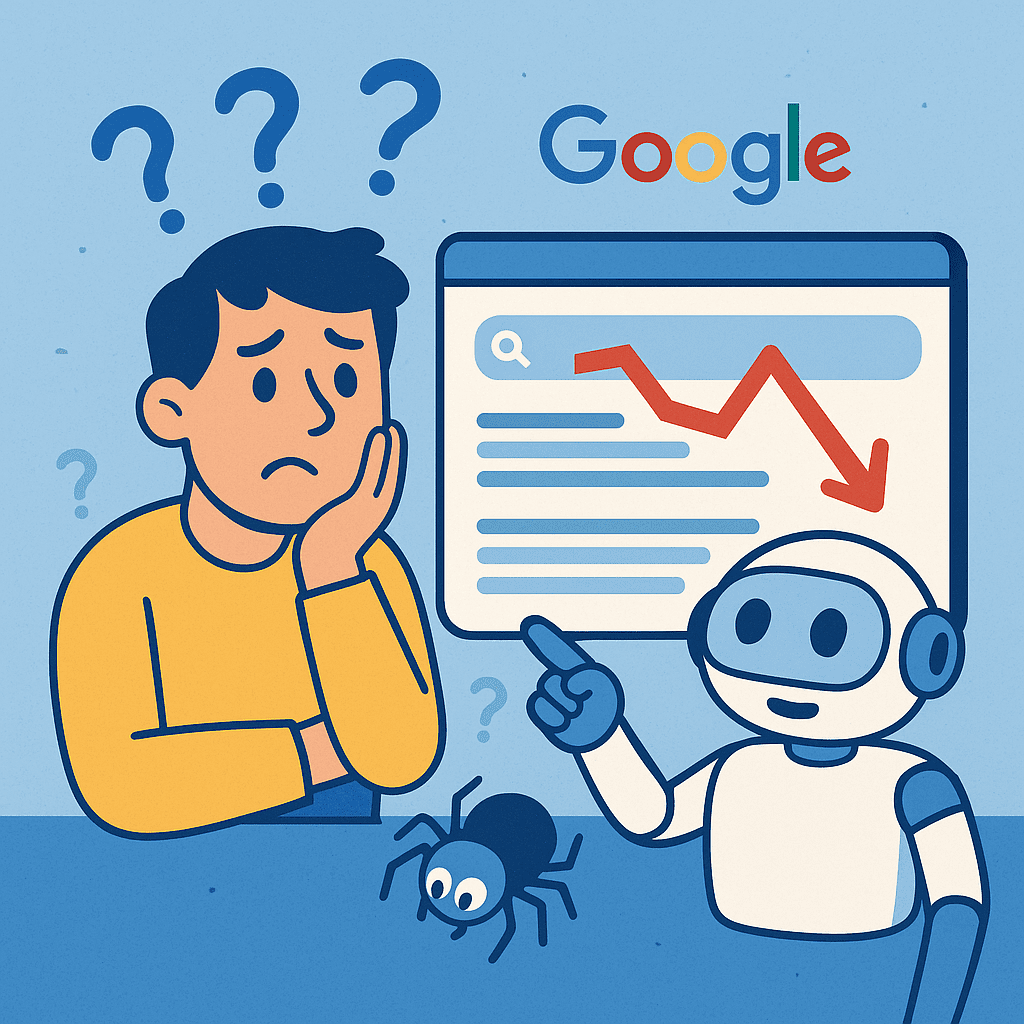
🔎 1. Your Website Isn’t Being Indexed by Google
If your website isn’t appearing at all in Google searches, the first thing to check is whether it’s even been indexed.
🛠️ What to Do:
- Visit: Google Search Console
- Use the URL Inspection Tool to check if your pages are indexed.
- If not, submit your XML sitemap (usually
yourdomain.com/sitemap.xml) to Google Search Console.
Also, make sure your site isn’t accidentally blocking search engines. Check your robots.txt file and WordPress settings (under Settings > Reading) to ensure the “Discourage search engines from indexing this site” box is not ticked.
🚫 2. Your Website Is Too New
New websites often take time to appear in search results. Google doesn’t automatically trust a brand-new site — it needs to learn about it over time.
🛠️ What to Do:
- Be patient, but proactive.
- Submit your sitemap to Search Console.
- Start building high-quality content.
- Gain a few relevant backlinks to show Google you’re legitimate.
❌ 3. You’re Not Targeting the Right Keywords
If you’re not using the words people are actually searching for, Google won’t connect your pages with those searches.
Many beginners make the mistake of guessing keywords instead of researching them.
🛠️ What to Do:
- Use tools like Google Keyword Planner, Ubersuggest, or AnswerThePublic.
- Include keywords naturally in titles, headings, URLs, alt text, and content.
- Avoid keyword stuffing — overusing keywords in an unnatural way.
🪓 4. You’re Competing for Highly Competitive Keywords
Trying to rank for terms like “SEO” or “cheap flights” as a small website is like entering a marathon against Olympic athletes.
🛠️ What to Do:
- Go after long-tail keywords like “affordable SEO services for small businesses.”
- They’re easier to rank for and often more targeted.
📉 5. Your On-Page SEO Needs Work
Even if your content is good, poor on-page SEO can make it harder for Google to understand and rank your site.
Common Issues:
- Missing or duplicate title tags
- No H1 tag on the page
- No internal linking
- Slow loading times
- Non-mobile-friendly design
🛠️ What to Do:
- Use a plugin like Yoast SEO or Rank Math.
- Optimise headings, meta tags, and images.
- Improve site speed with PageSpeed Insights.
- Add internal links to related content.
📵 6. You Have Technical SEO Errors
Even the best-looking website can be held back by technical problems under the hood.
Common Issues:
- Broken links
- No HTTPS
- Duplicate content
- No canonical tags
- Missing sitemap.xml or robots.txt
🛠️ What to Do:
- Use free tools like Ahrefs Webmaster Tools or Semrush Site Audit.
- Fix broken links, ensure SSL is active, and eliminate duplicate content.
🕵️ 7. You Don’t Have Backlinks (Yet)
Google sees backlinks as “votes” of trust. If no other websites link to yours, it’s harder for Google to know you’re worth ranking.
🛠️ What to Do:
- List your site in business directories.
- Ask partners or suppliers for backlinks.
- Write guest posts or share helpful content in online communities.
👻 8. Your Content Is Thin or Not Helpful
Google prioritises useful, original, and high-quality content. If your pages are short, generic, or copied from elsewhere, they won’t perform well.
🛠️ What to Do:
- Answer real questions your audience is asking.
- Add structure: headings, lists, examples, FAQs.
- Use a friendly, natural tone. Write like you speak.
🔇 9. You Don’t Have a Blog or Regular Updates
If your site is static, Google may see it as outdated. Fresh content helps show relevance and authority.
🛠️ What to Do:
- Start a blog and publish regularly (even once a month helps).
- Write about tips, updates, how-tos, and customer stories.
- Update old posts with fresh stats or improved content.
🧨 10. You’re Relying Too Heavily on One Page
Some businesses focus everything on one page — the home page. But that gives Google very little to work with.
🛠️ What to Do:
- Create inner pages for services, locations, FAQs, and blog posts.
- Each page is a new opportunity to rank.
🧠 Final Thoughts: SEO Takes Time — But It Works
Search Engine Optimisation isn’t magic — and it won’t happen overnight. But if you fix these common issues and keep improving your content and site structure, you will see results.
The key is consistency, clarity, and a bit of patience. Google is always watching — and it rewards those who make things easier and better for real users.


